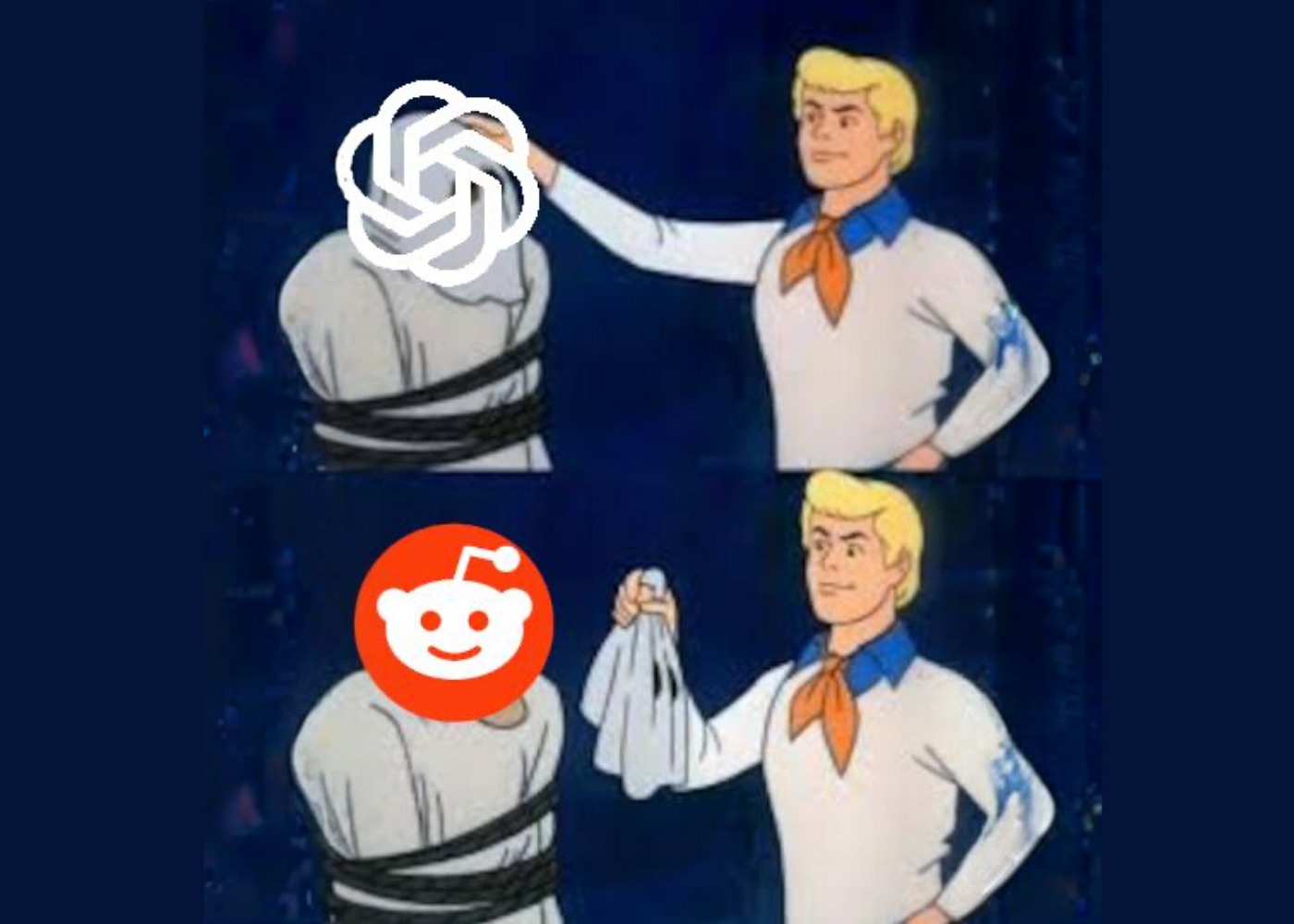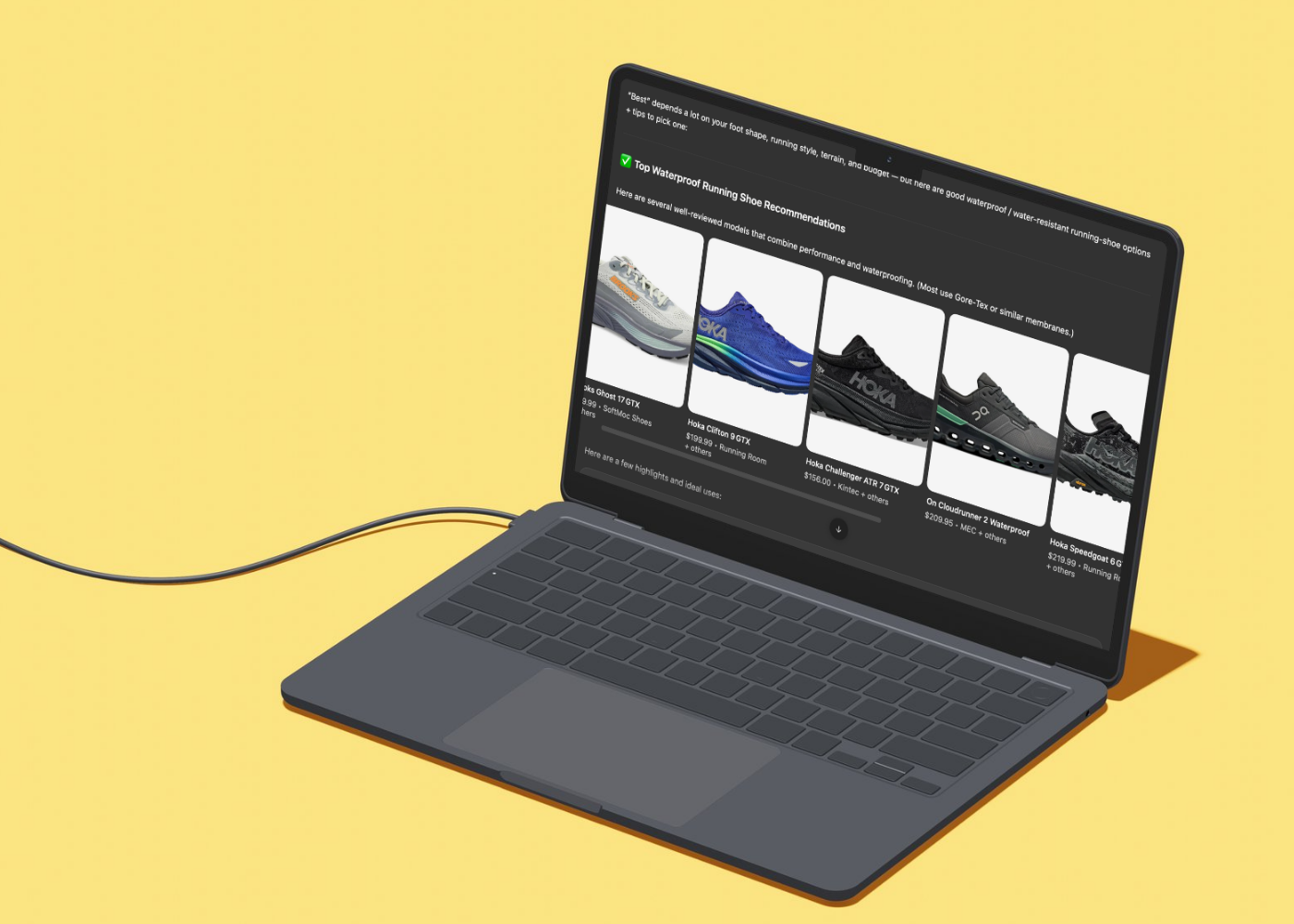
AI Summary
ChatGPT Shopping is coming, and it will fundamentally change how consumers discover and buy products. For D2C brands, this isn't just another channel—it's a chance to compete on equal footing with Amazon and major retailers for the first time in years. Early winners will dominate recommendations for years because AI platforms prioritize brands with established citation networks, review consensus, and clear positioning. Unlike paid ads that disappear when budgets dry up, AEO (AI Engine Optimization) compounds over time. Brands building AI visibility now—through quality citations, authentic reviews, technical optimization, and Reddit presence—will own their category when ChatGPT Shopping goes live. Those waiting will find themselves locked out, buried under competitors who moved first. The window is 6-12 months. After that, catching up becomes exponentially harder.
ChatGPT Shopping isn't live yet. But when it launches, it will change everything for D2C brands.
Not because it's a new sales channel. Because it levels the playing field in ways Google and Amazon never did.
Here's why D2C brands that win at AEO (AI Engine Optimization) now will dominate their categories for years—and why waiting even six months could cost you the race.
What makes ChatGPT Shopping different from Amazon or Google Shopping?
No pay-to-play advantage. No algorithm you can game with ad spend.
ChatGPT Shopping will recommend products based on consensus, not whoever pays the most for placement. It aggregates reviews, citations, community discussions, and expert opinions to determine the "best" answer for each query.
For D2C brands, this is revolutionary. You've spent years fighting Amazon's stranglehold on product search and Google's ad auction inflation. ChatGPT Shopping removes both barriers.
A well-positioned D2C brand with strong reviews and quality press coverage can outrank Fortune 500 competitors who've relied on ad spend instead of reputation. The brands that built genuine trust and visibility will win. Those that bought their way to the top won't.
This is your chance to compete purely on merit—but only if you've built the foundation before launch.
Why does early positioning in AEO compound over time?
AI platforms prioritize brands with established citation networks. The longer you've been mentioned by trusted sources, the more confident ChatGPT becomes recommending you.
This creates a compounding effect traditional channels don't offer:
Paid ads: Stop paying, stop showing up. Zero compounding.
SEO: Takes 6-12 months to build, but competitors can outrank you with better content or links. Compounding exists but stays competitive.
AEO: Every quality citation, review, and Reddit mention builds permanent credibility. ChatGPT doesn't forget. A press feature from 2023 still influences 2025 recommendations. Compounding accelerates over time.
Brands that start building AEO visibility now will have 12-24 months of citation history when ChatGPT Shopping launches. Brands starting after launch will be 1-2 years behind, fighting uphill against established recommendation patterns.
Early movers don't just win. They lock competitors out through sheer momentum.
How long does it actually take to build AI visibility?
Six to twelve months to reach the threshold where ChatGPT recommends you consistently.
Here's the realistic timeline:
Months 1-3: Technical optimization (schema markup, site speed, mobile), content audit, initial press outreach, Reddit engagement starts. You won't see mentions yet.
Months 4-6: First quality citations land. ChatGPT starts mentioning you occasionally (10-20% of relevant queries). Reddit comments begin compounding. Review generation strategy kicks in.
Months 7-9: Citation portfolio hits 6+ high-authority sources. Mention rate jumps to 40-60%. Repeated coverage from key publications builds consistency. Co-citation networks strengthen.
Months 10-12: Sustained visibility at 60-80% mention rates. ChatGPT confidently recommends you in most relevant contexts. New content gets indexed faster. Competitive moat widens.
That's the timeline if you start today. If ChatGPT Shopping launches in Q2 2025 and you start in Q1 2025, you'll hit launch with minimal visibility. Your competitors who started in Q3 2024 will own the recommendations.
The window to build this foundation is closing. Fast.
What happens to brands that wait until ChatGPT Shopping is live?
They get buried under established competitors and never catch up.
When ChatGPT Shopping launches, it won't start with a blank slate. It already knows which brands have strong citation networks, quality reviews, and trusted positioning. Those brands get recommended immediately.
Brands without that foundation face a brutal reality:
You're invisible at launch. While competitors get featured, you're absent from recommendations. Customers don't even know you exist.
Building visibility takes 6-12 months. By the time you're recommendable, early movers have widened their lead with more sales, reviews, and citations generated through ChatGPT Shopping itself.
The gap compounds. Every sale competitors make through ChatGPT Shopping generates more reviews, which strengthens their recommendations, which generates more sales. You're fighting an accelerating flywheel.
Catching up becomes exponentially harder. Not impossible, but you'll burn 3-5X more resources fighting for scraps while competitors own the category.
This isn't like missing early Facebook ads or late TikTok. Those channels eventually equalized. AI recommendations entrench winners through citation momentum that's nearly impossible to reverse.
Why can't D2C brands just buy their way in with ads later?
Because ChatGPT Shopping won't have traditional ad placements.
Amazon lets you buy Featured placement. Google Shopping runs on ad auctions. ChatGPT Shopping will rely on organic recommendations driven by citation quality and review consensus.
You can't pay to jump the line. You can't outbid competitors. The only currency is credibility, and credibility takes time to build.
D2C brands that grew by scaling Facebook and Google ads will face a reckoning. The skills that worked for the last decade—media buying, creative testing, ROAS optimization—don't transfer. AEO requires different muscles: PR, community engagement, technical optimization, review generation.
Brands pivoting after launch will struggle. Those building these capabilities now will thrive.
What should D2C brands prioritize to prepare for ChatGPT Shopping?
Focus on the fundamentals that drive AI recommendations:
Build your citation portfolio. Target 6-8 high-authority sources in your category. Pitch consistently. Aim for repeated coverage from the same publications over time. Quality beats quantity.
Generate authentic reviews across platforms. ChatGPT aggregates reviews from Amazon, Google, Trustpilot, Reddit, and niche forums. Don't concentrate reviews on one platform. Spread them strategically where AI looks for proof.
Optimize technical foundations. Schema markup for products, offers, and reviews. Fast site speed. Mobile-first experience. Clear product descriptions AI can parse. These aren't nice-to-haves—they're table stakes.
Engage genuinely on Reddit. Spend 5-10 hours monthly answering questions in relevant subreddits. Reddit citations punch 5X above their weight. One helpful comment can influence recommendations for years.
Position clearly against competitors. AI needs to understand who you're for and why you're different. Vague positioning ("quality products for everyone") gets ignored. Specific positioning ("safety razors for sensitive skin, engineered for beginners") gets recommended.
What's the competitive advantage for brands that move now?
First-mover advantage that lasts years, not months.
In paid advertising, first-movers get maybe 6-12 months of arbitrage before costs equalize. In AEO, first-movers get multi-year dominance because citation momentum compounds and competitors can't shortcut the process.
Consider what happens when ChatGPT Shopping launches:
Early movers: Already recommended 60-80% of the time. Every ChatGPT Shopping sale generates more reviews, strengthening recommendations further. The flywheel accelerates.
Late movers: Invisible at launch. Spending 6-12 months building visibility while competitors capture market share. Playing catch-up with fewer resources and no momentum.
The gap doesn't close. It widens.
Brands investing in AEO now are building a moat that's nearly impossible to breach. Not because the tactics are secret, but because the timeline can't be compressed. You can't buy your way to 2 years of citation history. You have to build it.
How will ChatGPT Shopping change the D2C landscape long-term?
It shifts power back to brands that earned customer trust, away from brands that bought attention.
For the last decade, D2C success came down to who could afford the highest CPMs and scale performance marketing fastest. Venture-backed brands with deep pockets dominated because they could outspend bootstrapped competitors on Facebook and Google.
ChatGPT Shopping resets the game. It doesn't care about your ad budget. It cares about your reputation across the entire internet—press, reviews, community discussions, expert opinions.
This favors brands that:
- Built genuine products people rave about
- Earned respect from industry publications
- Engaged authentically with communities
- Maintained quality and consistency over time
It punishes brands that:
- Relied purely on paid acquisition
- Generated revenue without building reputation
- Ignored reviews and community feedback
- Prioritized scale over customer satisfaction
The next decade of D2C belongs to brands with strong fundamentals. Not the loudest marketing, but the best product-market fit validated by independent sources.
If your brand has genuine traction but struggles competing with bigger ad budgets, ChatGPT Shopping is your opportunity. But only if you build the AEO foundation now.
The bottom line
ChatGPT Shopping isn't coming someday. It's coming soon. And it will change how millions of people discover and buy products.
D2C brands that win at AEO before launch will dominate their categories for years. Those that wait will spend years trying to catch up, burning resources fighting for visibility while early movers own the recommendations.
The tactics aren't complicated: build quality citations, generate authentic reviews, optimize your technical setup, engage on Reddit, and position clearly.
But the timeline can't be shortcut. Building AI visibility takes 6-12 months. If you start now, you'll be ready when ChatGPT Shopping launches. If you wait, you'll miss the window.
This is the biggest opportunity D2C brands have had in a decade to compete on merit instead of ad spend. Don't waste it.
FAQs
When is ChatGPT Shopping actually launching?
OpenAI hasn't announced an official date, but industry signals point to Q2-Q3 2025. Even if it's delayed to Q4 2025 or Q1 2026, the 6-12 month timeline to build AEO visibility means you need to start now regardless. Brands that wait for launch confirmation will already be 6+ months behind early movers.
Will ChatGPT Shopping replace Amazon for D2C brands?
Not replace, but it will capture a significant share of product discovery. Consumers will still buy on Amazon for convenience and Prime benefits, but ChatGPT Shopping will influence which brands they search for. Think of it as top-of-funnel discovery that drives traffic across all channels, not just ChatGPT transactions.
Can established brands with big ad budgets just outspend smaller D2C competitors?
No. That's the entire point. ChatGPT Shopping doesn't have ad placements you can buy. Recommendations are driven by citation quality and review consensus, not budget. A well-positioned D2C brand with strong reputation beats a Fortune 500 competitor with weak online presence. This is the great equalizer.
What if my D2C brand has amazing products but weak online presence?
Start building now. Amazing products make the AEO process easier because generating authentic reviews and earning press coverage is simpler when quality backs it up. Focus on: 1) encouraging customers to leave reviews across platforms, 2) pitching your story to category-specific publications, 3) engaging authentically in relevant Reddit communities. Six months of effort can close the gap.
Should I pause other marketing channels to focus on AEO?
No. AEO should complement, not replace, existing channels. Allocate 10-20% of marketing resources to AEO while maintaining performance marketing, email, and other drivers. As ChatGPT Shopping grows post-launch, shift more budget toward AEO and away from channels with declining ROI. This is a transition, not a hard pivot.
How do I know if my AEO efforts are working before ChatGPT Shopping launches?
Test manually. Ask ChatGPT 20-30 queries related to your category and track mention frequency monthly. Search for "[your product category] recommendations" or "best [product] for [use case]" and see if your brand appears. Track citation count, review distribution across platforms, and Reddit presence. Visibility in regular ChatGPT predicts performance in ChatGPT Shopping.
Ready to transform your digital strategy
Learn how AI search can revolutionize your brand's online visibility and engagement.
More insights on AI search
Discover cutting-edge strategies for digital marketing success
Stay ahead in AI search
Subscribe to our blog and get insights before anyone else




